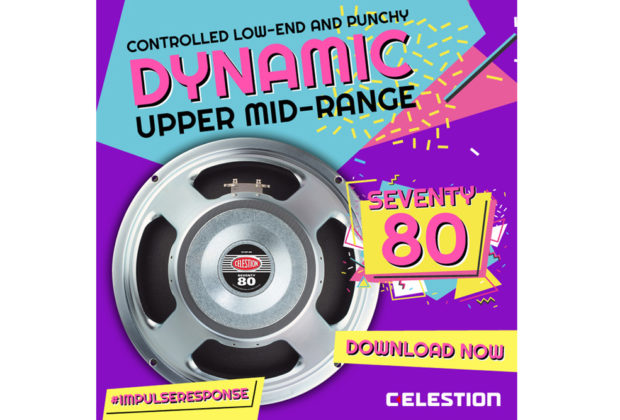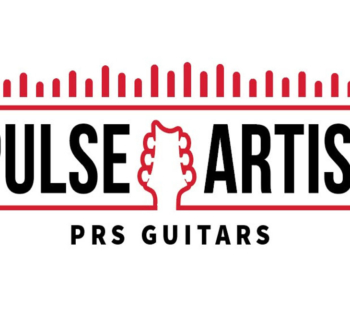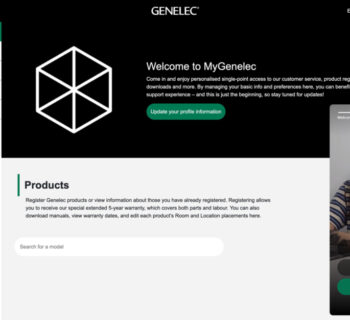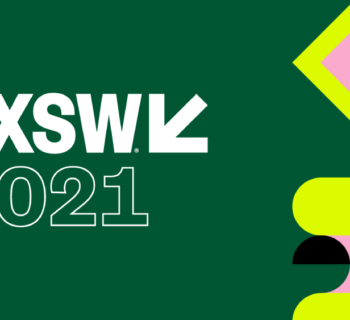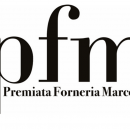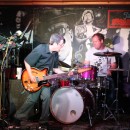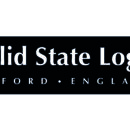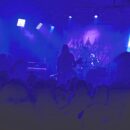Celestion, a manufacturer of guitar and bass loudspeakers, has announced the introduction of the Seventy 80 Collection of Impulse Responses, the digital recreation of their Seventy 80 guitar loudspeaker. The new Seventy 80 Collection, along with a collection of authentic Celestion guitar speaker tones, is available for audition and download at CelestionPlus.
The Celestion Seventy 80 speaker was conceived in the late 1990s as the G12P-80 and has found its way into a number of amps and cabs around the world. It delivers a modern, British sound.
With a defined tone, the Seventy 80 has a tightly controlled low-end with a dynamic upper mid-range. Its top-end response is clear and glassy for enhanced treble and a full-range feel. The Seventy 80’s low notes are tight, partnered with an upper register that has definition and clarity, helpful for searing lead lines or sparkling rhythm work. Now Celestion has captured the Seventy 80 tone in a digitally downloadable Impulse Response.
The Celestion Seventy 80 IR collection is available in five classic cabinet configurations including:
- 1×12 (open back)
- 1×12 (closed back)
- 2×12 (open back)
- 2×12 (closed back)
- 4×12 (closed back)
The new Seventy 80 impulse responses have been digitally captured by sound engineers. Celestion has used the same range of studio mics (Shure SM57, Royer R-121 and Sennheiser MD421) in the same six fully-adjustable positions as the current range of cabinet impulse response to offer the same options—Balanced, Bright, Thin, Fat, Dark and Dark 2, as well as an additional rear mic for the open back cabinets. The Seventy 80 impulse responses have additionally been recorded using a Neumann TLM 107 room mic (Left, Right and Stereo) for the widest range of tonal options possible.
The Celestion Seventy 80 IRs can be purchased individually or as a collection for a nearly 50% discount. As with all of Celestion’s ranges of speaker Impulse Responses, the new Seventy 80 IRs are downloaded in .WAV format to ensure compatibility with the majority of amp modelling software and plugins.

